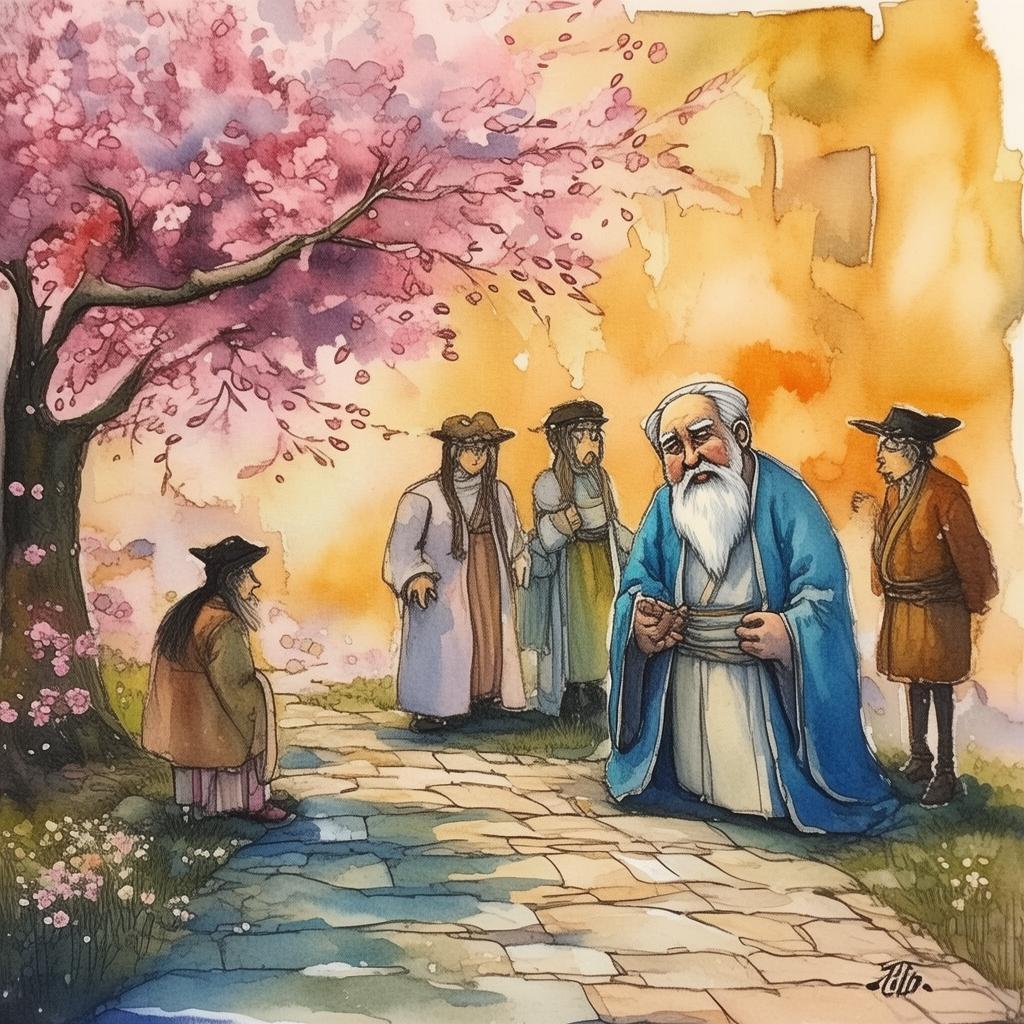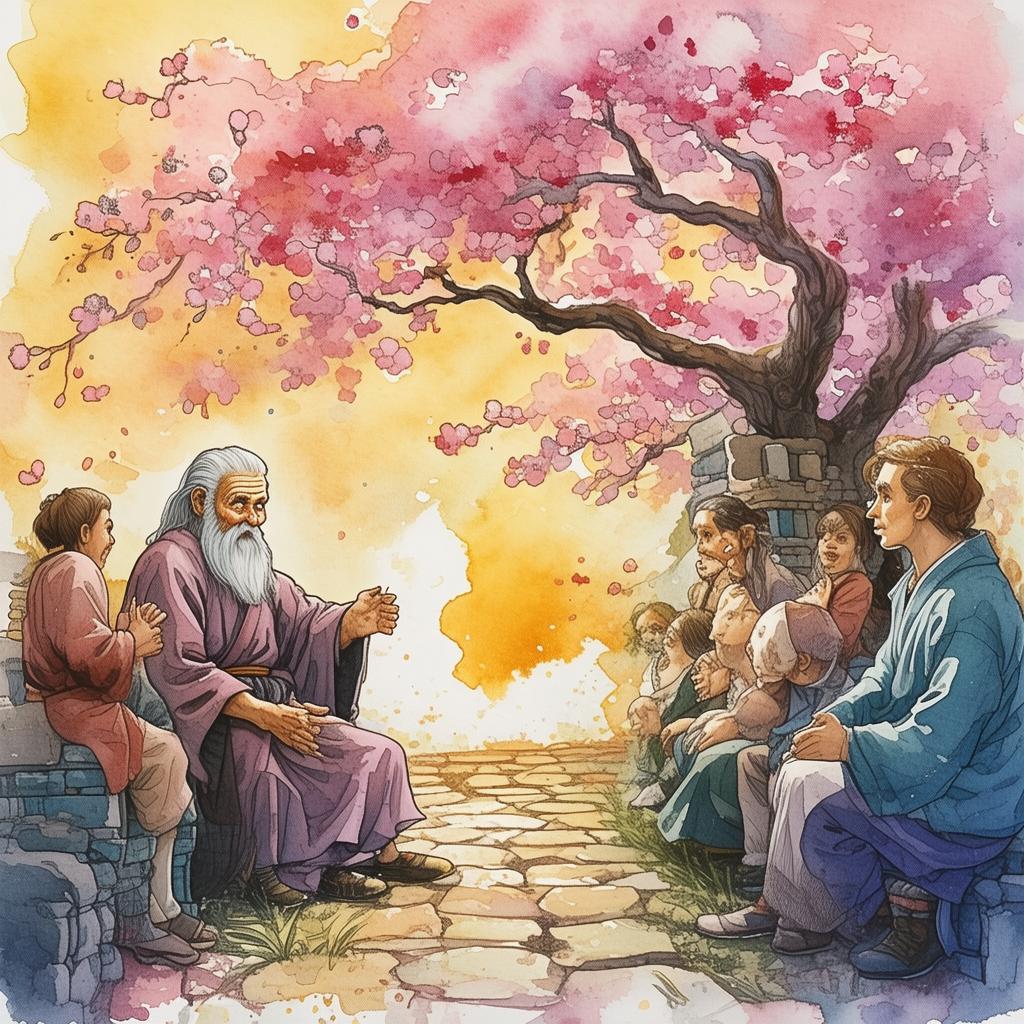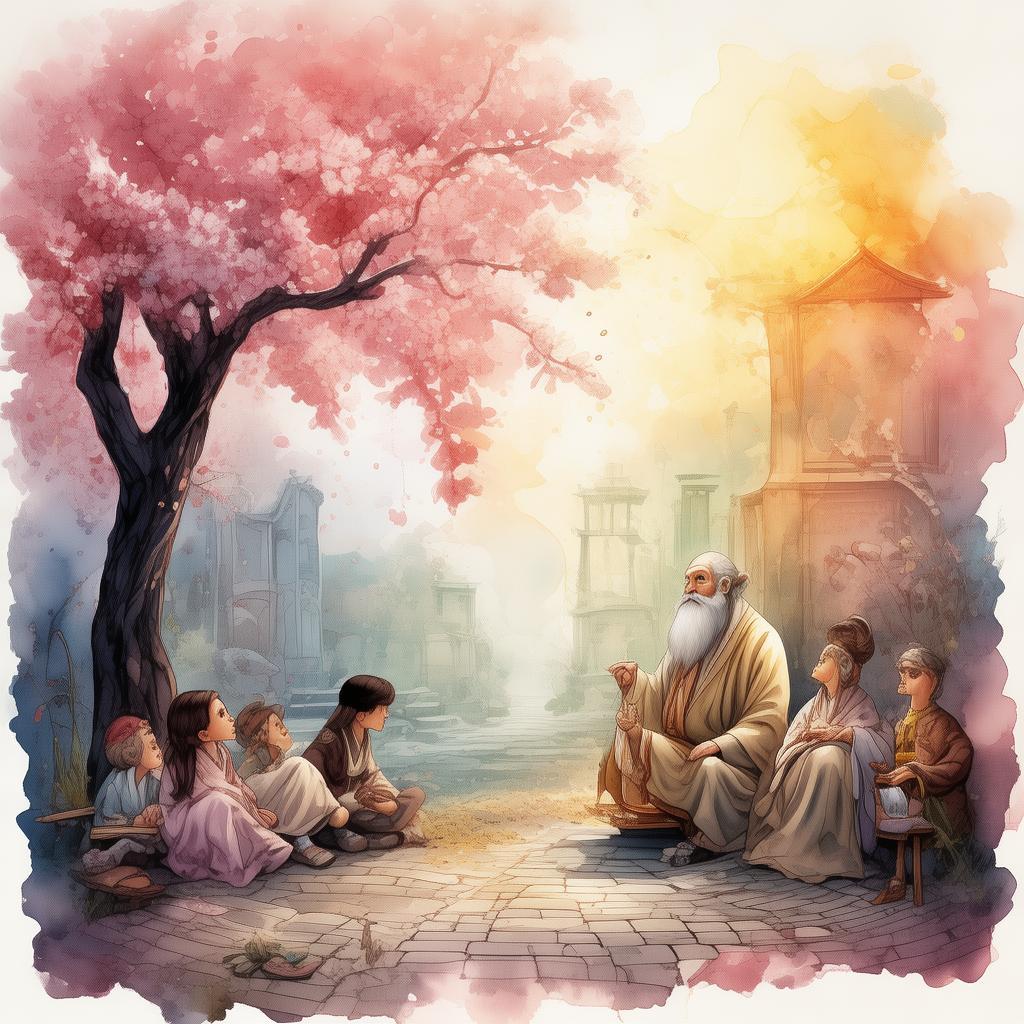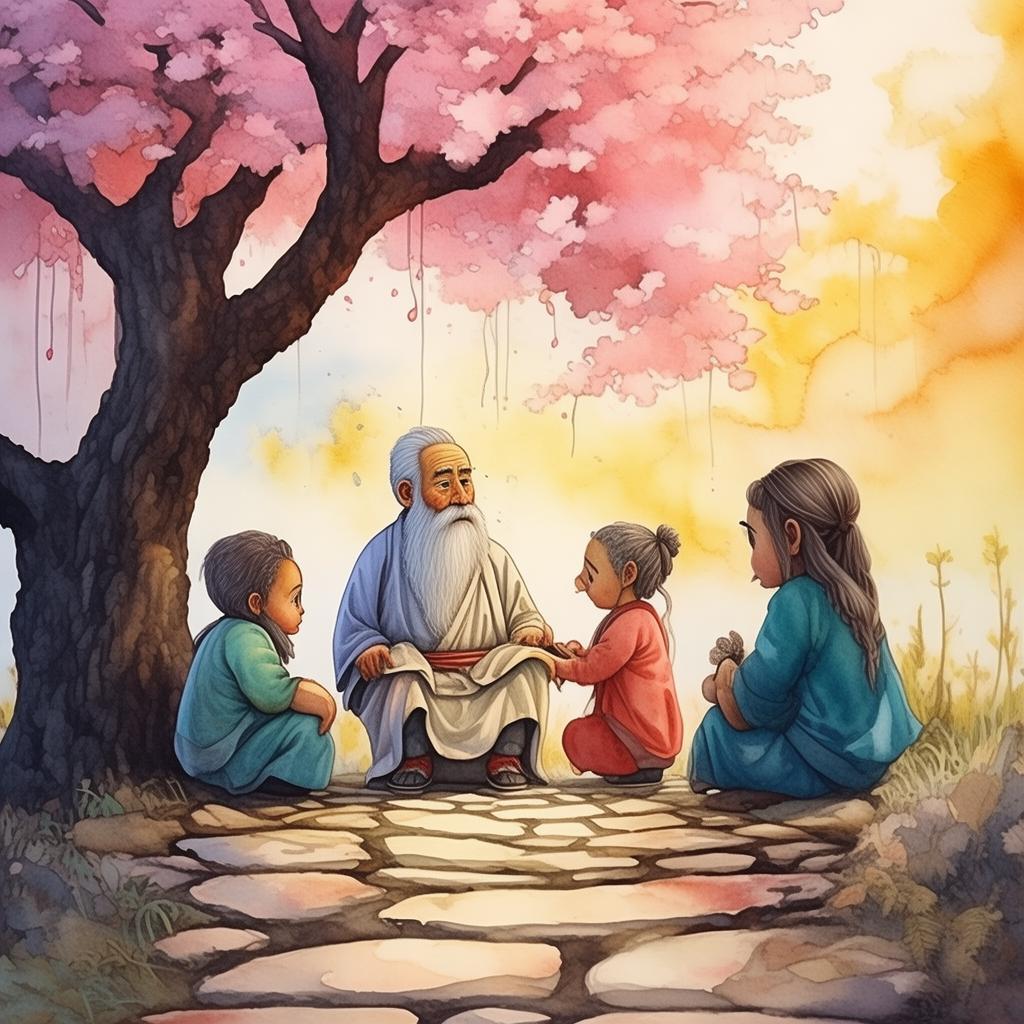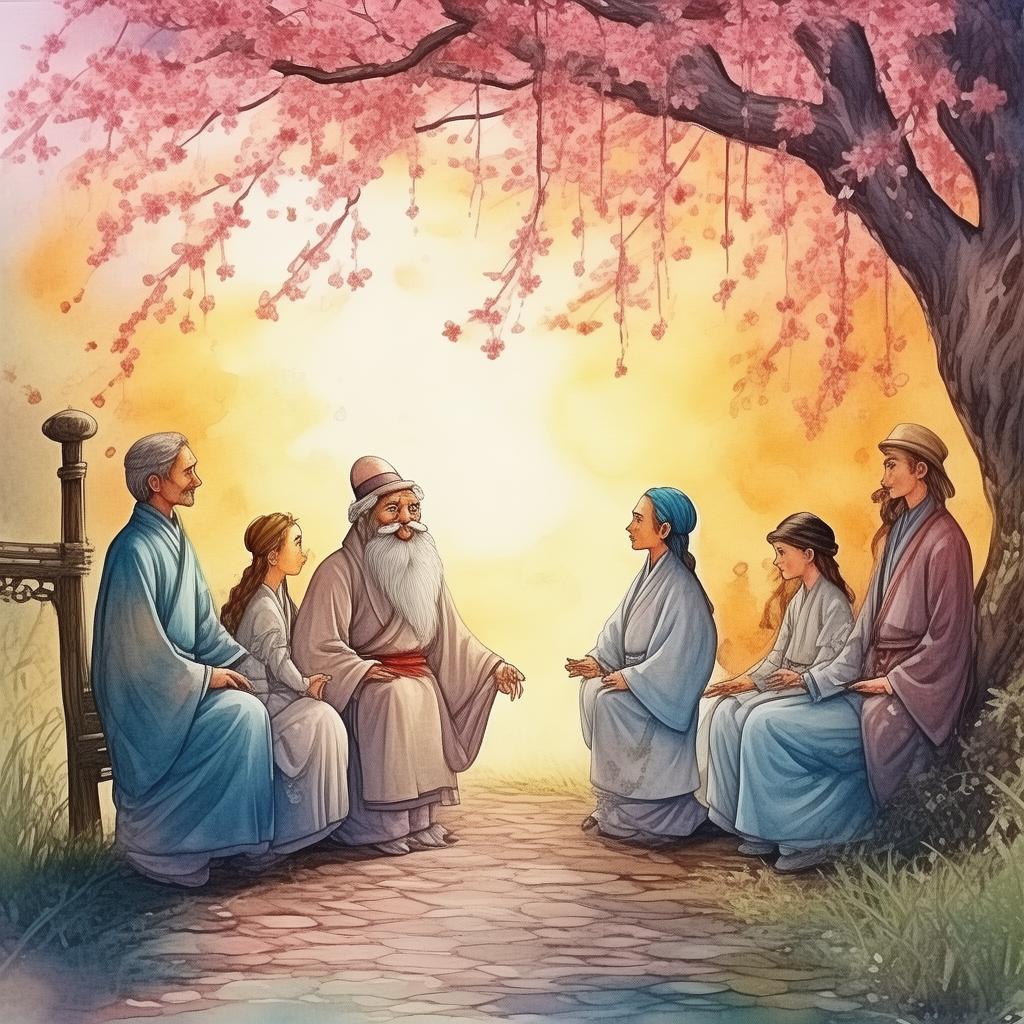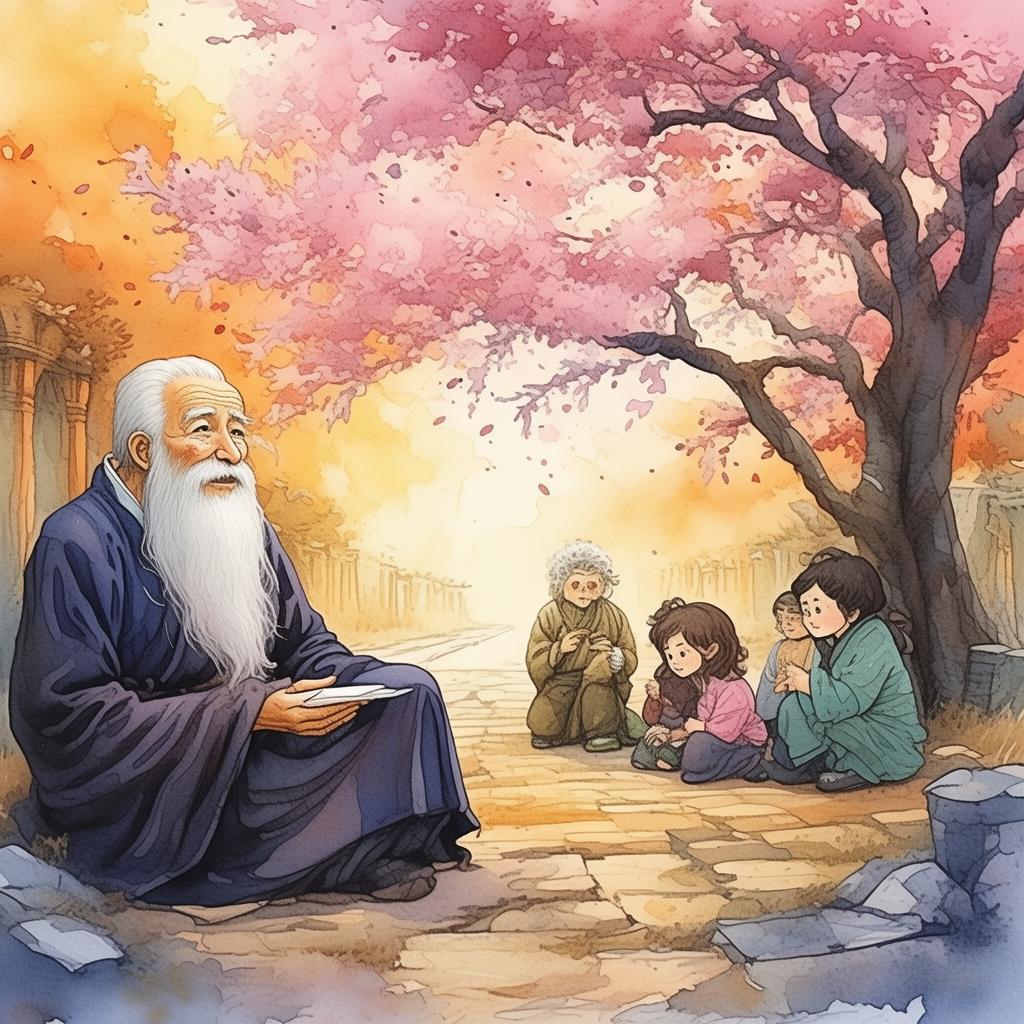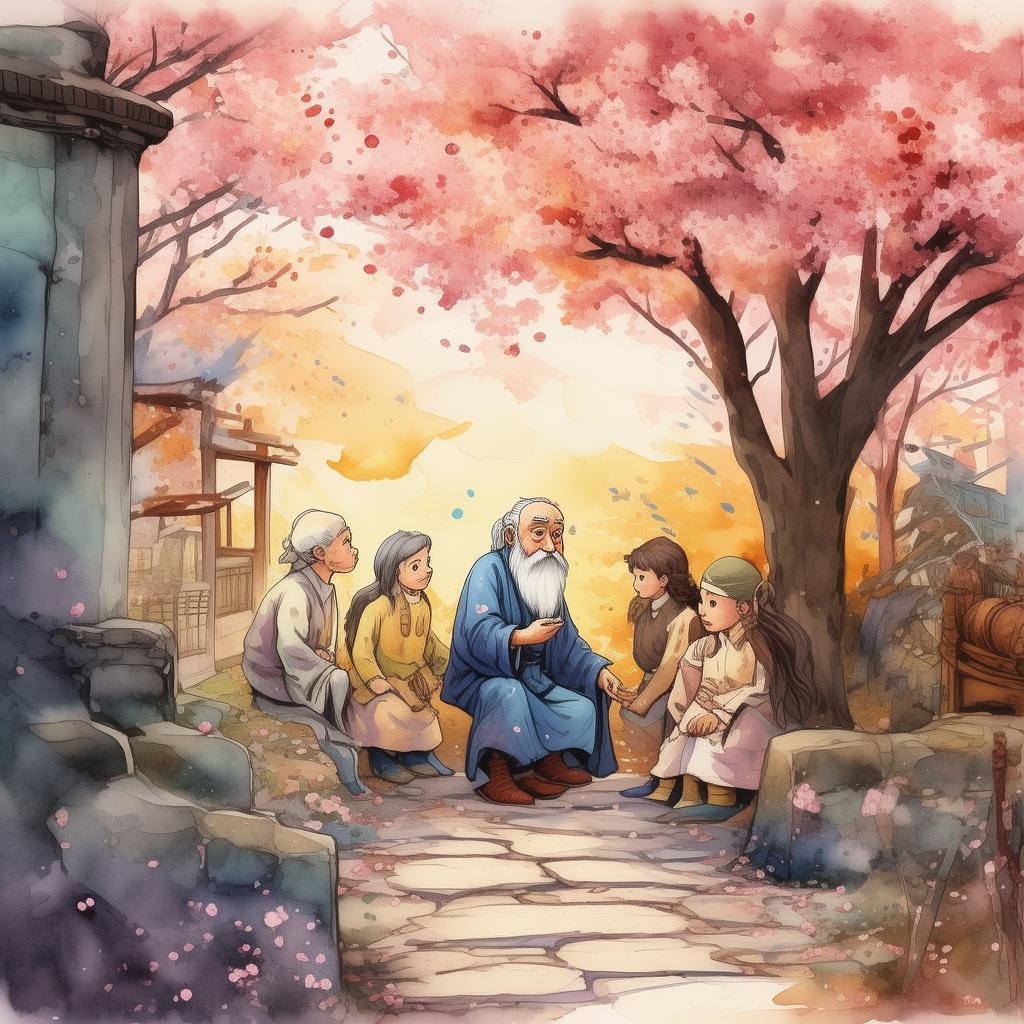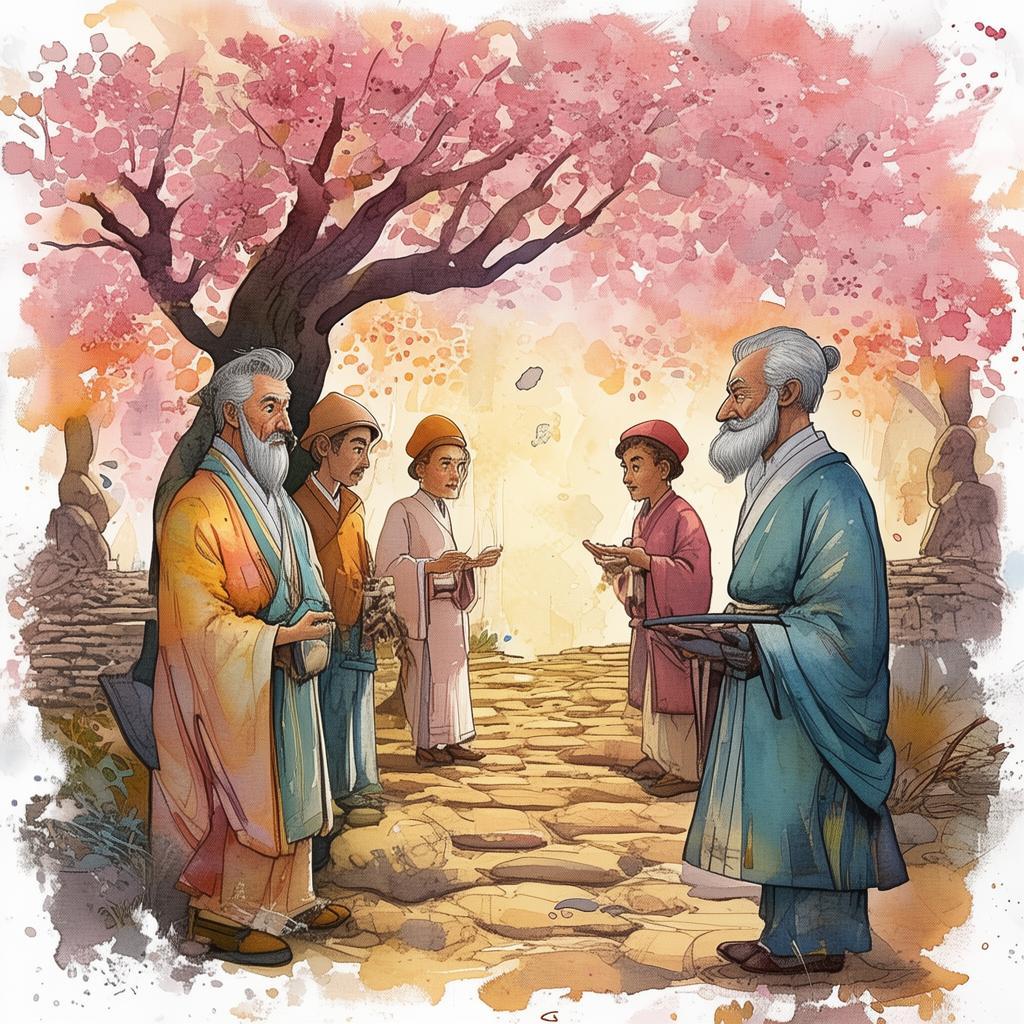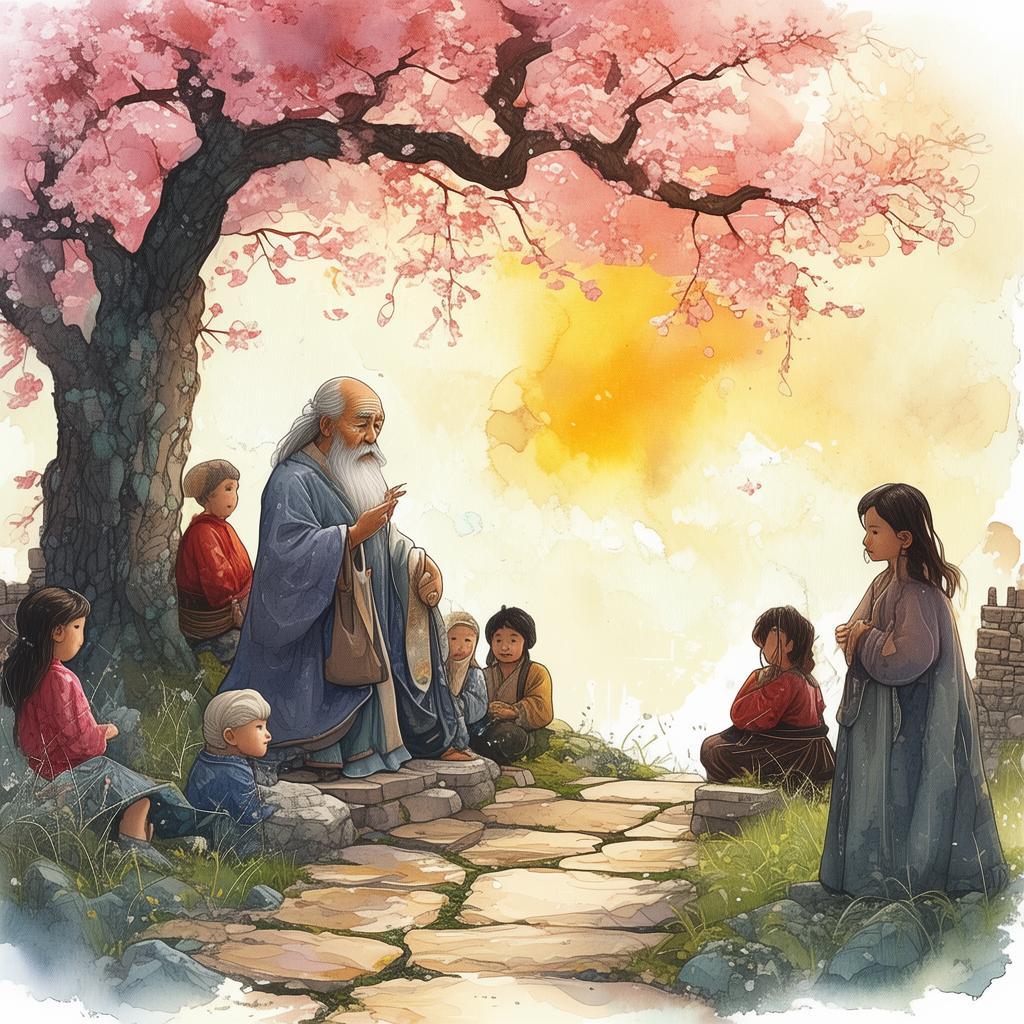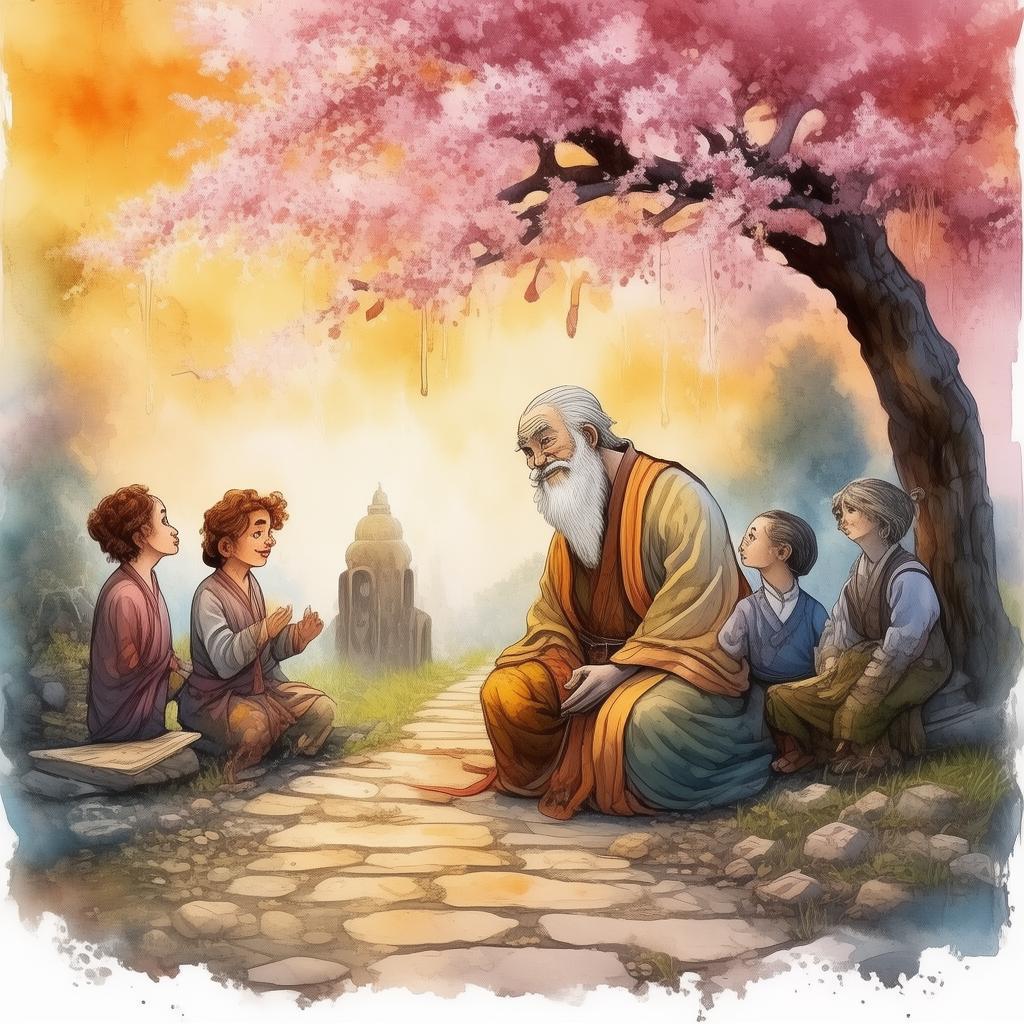The Paradox of the Scribe's Pen
In the heart of the ancient city of Lir, where the whispers of time were as tangible as the stone walls, there lived a young scribe named Erez. His name was a mere echo in the annals of history, but his pen wielded the power to shape the essence of ancient words, to bring the forgotten to life. It was said that Erez's soul was as delicate as his ink, and his thoughts as intricate as the most complex scroll.
Erez was given a task by the High Priestess of the Temple of the Soul, an enigmatic figure who walked the precipice of life and death. She requested that he transcribe a scroll that had been lost to time, a scroll said to hold the secret to the ancient words' spirit, a spirit that bound the souls of the past to the present.
The scroll was wrapped in cloth, the edges frayed, and its surface cracked with age. As Erez's fingers traced the ancient symbols, a strange phenomenon occurred; the air around him seemed to hum with a life force that was not of this world. The symbols glowed faintly, their light seeping through the cloth like the first rays of dawn.
In the depths of the scroll, he found a riddle: "Who am I, if not what I am? What am I, if not who I was? If I am both, then what am I not?" The words were not just written; they seemed to be carved into his very being, haunting his every thought.
Erez realized that the scroll was more than just a repository of knowledge; it was a testament to the soul's paradoxical predicament, a dilemma that mirrored the very essence of the ancient words' spirit. The riddle spoke of identity, of the fluidity between past and present, and the elusive nature of existence itself.
As days turned into weeks, Erez's life became intertwined with the scroll's enigmatic words. He found himself drawing closer to the High Priestess, her eyes piercing through the veil of mystery. They spoke of the souls that were bound to the ancient words, of the power to free them, and the price to be paid for such freedom.
The High Priestess revealed that Erez's own soul was bound to the scroll, and that by transcribing its words, he would unlock the secrets of his own past. The paradox was clear: he could free the ancient souls and in doing so, free his own soul, or he could keep his own soul bound by the weight of the ancient words' spirit.
As the time drew near for the transcribing, Erez found himself at the crossroads of his destiny. The High Priestess watched him with eyes that held the weight of a thousand lives. He knew that the choice he made would echo through the ages, a testament to his courage or his folly.
With a deep breath, Erez opened the scroll and began to write. The symbols danced on the parchment, each stroke of his pen a thread in the tapestry of destiny. As he neared the end of the riddle, he felt a strange sensation, as if the air around him was charged with the energy of the universe.
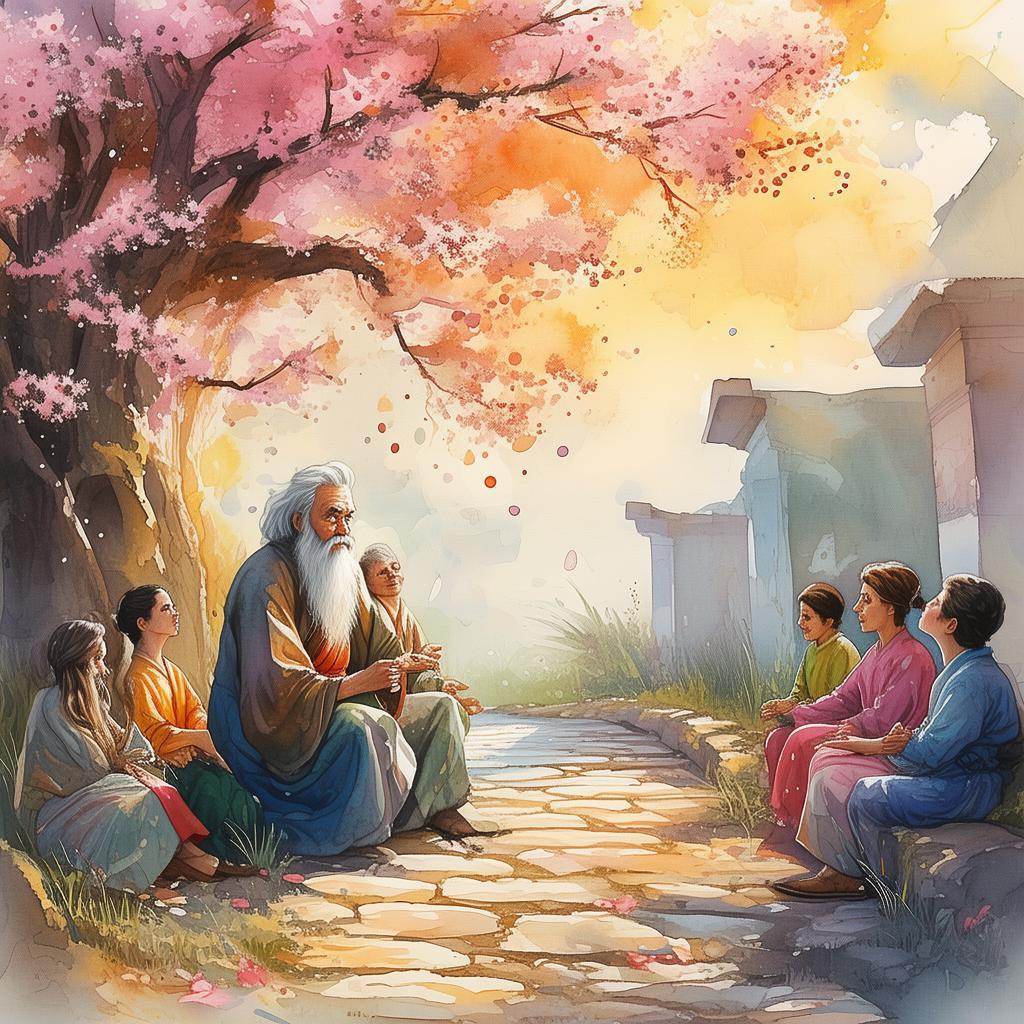
In that moment, he understood the true meaning of the riddle. It was not about identity or the nature of existence; it was about choice. He had the power to choose between loyalty and revelation, between the known and the unknown.
Erez reached the last symbol and paused, his heart pounding in his chest. He had to make a decision. He had to choose.
In a burst of clarity, he chose to keep the secret of the ancient words' spirit, to bind his own soul to the scroll and protect the souls of the past. With a single stroke, he sealed the scroll, his pen now a beacon of protection rather than a weapon of revelation.
The High Priestess smiled, her eyes softening. "You have chosen wisely, Erez," she said. "The soul's paradoxical predicament is not easily solved, but you have done so with grace and wisdom."
Erez looked at the scroll, now a silent witness to his decision. He knew that the ancient words' spirit would continue to exist in the hearts and minds of those who sought the truth, but that he would be part of a legacy of silence, a testament to the power of choice.
The Paradox of the Scribe's Pen was not just a story of a young scribe and the ancient scroll; it was a story of the human soul, its choices, and the weighty responsibility of holding the keys to the past.
✨ Original Statement ✨
All articles published on this website (including but not limited to text, images, videos, and other content) are original or authorized for reposting and are protected by relevant laws. Without the explicit written permission of this website, no individual or organization may copy, modify, repost, or use the content for commercial purposes.
If you need to quote or cooperate, please contact this site for authorization. We reserve the right to pursue legal responsibility for any unauthorized use.
Hereby declared.
